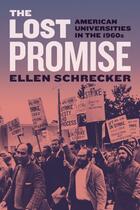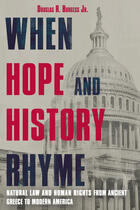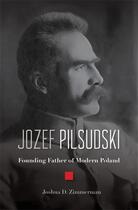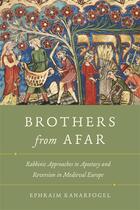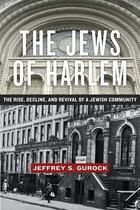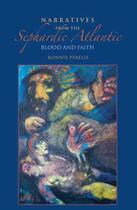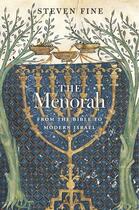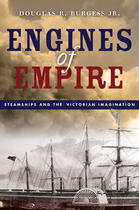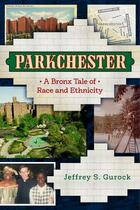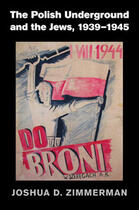
Robert M. Beren Department of History
Yeshiva College and Stern College for Women
History at YU
History is not like any other major or discipline. It is not a skill to be acquired or a problem to be solved. It is our story, the collective tale of humanity. We study history to understand how our world came to be what it is, and how we came to be ourselves.
We have learned that there are many ways to interpret a single event, many voices telling the same story through their own words. Historians rediscover and reanimate these voices and use them to construct narratives by which our present society better understands the past. Although we recognize there is no single dominant narrative, no absolute “truth,” we know that history and fable are not synonymous. As instructors, we instill the same skillset in our students that we use ourselves: critical reasoning, intellectual curiosity, the ability to construct a viable argument from researched sources, and the confidence to defend it successfully in any forum.
These skills have many uses, both inside and outside academia. Students trained in history are often best poised for careers in the law and public service, or any job that requires an ability to reason and a capacious understanding of the world. Those who pursue teaching careers, either in secondary or postgraduate education, will leave Yeshiva University with a solid foundation in all core subject areas of history, and the academic training needed to excel in graduate school. Our department is committed to the intellectual development of every student we teach, regardless of major or career path.
Come and let us share the past with you.
Mission Statement
The Robert Beren Department of History at Yeshiva University seeks to instill each student with a comprehensive understanding of the past, both in its own context and how it informs the present. Through small, interactive colloquia, instructors introduce students to the complex and often competing narratives of world history, inviting them to examine sources objectively and formulate their own conclusions as to meaning.
Our courses cover a broad range of historical fields, with particular strengths in the history of Jews and Judaism. Specific topics include: Roman Emperors; Renaissance and Reformation; History of the Book; US Presidents; History of Piracy; Legal History; Modern Russia; Social Movements; History of the Jerusalem Temple; the Talmudic Rabbis; Medieval Jewish History; Jews in the New World; the Jewish Experience in Europe; The Holocaust; and History of Modern Israel.
In moving across chronological divisions and geographic boundaries, the History curriculum is designed to provide foundational knowledge while encouraging independent thought. Through written work and lively class discussion, students acquire the ability to craft a persuasive argument and present it cogently to their peers. More importantly, they gain an awareness of the vast richness of the human experience, and their own role as citizens, scholars, and members of the global community.
Advanced students may participate in graduate courses in the Bernard Revel Graduate School of Jewish Studies, and are invited to consider the joint BA/MA program in Jewish Studies.
Program Student Learning Goals
- Understanding how historians gather, interpret and analyze source material and how they construct a narrative from that material.
- Demonstrating awareness of the variety of the human experience across space and time.
- Creating and communicating their own narratives of historical analysis in clear, concise prose.
For more information about the General History Division, please contact Professor Jeffrey Freedman at freedman@yu.edu
For more information about the Jewish History Division, contact Professor Joshua Karlip at Karlip@yu.edu.
Program Information
Thirty-three credits: HIST 1101, 1102, either 3001 or 3002 (capstone course) plus 24 additional HIST credits, of which 6 must be in American History. Up to 12 credits in Jewish history (in excess of those used to meet the Jewish studies requirement and distribution) may be counted toward the major.
A maximum of 6 AP History credits with a score of 4 or 5 may apply toward the major.
Eighteen credits: HIST 1101, 1102, plus 12 additional HIST credits, of which 3 credits must be in American History. Up to 6 credits in Jewish history (in excess of those used to meet the Jewish studies requirement and distribution) may be counted toward the minor.
A maximum of 3 AP History credits with a score of 4 or 5 may apply toward the minor.
The following list includes faculty who teach at the Beren (B) and/or Wilf (W)
Selma Botman
Provost and Vice President for Academic Affairs (B/W)
Douglas R Burgess Jr.
Professor of History (B/W)
Steven Fine
Professor of Jewish History; Director, YU Center for Israel Studies; Dean Pinkhos Churgin Chair in Jewish History (B/W)
Jeffrey Freedman
Chair, General History
Professor of History (B/W)
Jeffrey Gurock
Libby M. Klaperman Professor of Jewish History, (B/W)
Joshua Karlip
Herbert S. and Naomi Denenberg Chair of Jewish Studies; Associate Professor, Jewish History (B/W)
Ephraim Kanarfogel
E. Billi Ivry University Professor of Jewish History, Literature and Law, (B/W)
Mario Kessler
Visiting Professor of History (B/W)
Hadassa Kosak
Associate Professor of History, Emerita (B/W)
Jess Olson
Chair, Jewish History Division; Associate Professor, Jewish History (B/W)
Ronnie Perelis
Chief Rabbi Dr.Isaac Abraham and Jelena (Rachel) Alcalay Associate Professor of Sephardic Studies (B/W)
Ellen Schrecker
Professor of History, Emerita (B/W)
William Stenhouse
Professor of History (B/W)
Joshua Zimmerman
Professor of History (B/W)
History Courses Spring 2026: Yeshiva College
History Courses Spring 2026: Stern College
History Courses Fall 2025: Yeshiva College
History Courses Fall 2025: Stern College
History Courses Spring 2025: Yeshiva College
History Courses Spring 2025: Stern College
History Courses Fall 2024: Yeshiva College
History Courses Fall 2024: Stern College
History Courses Spring 2024: Yeshiva College
History Courses Spring 2024: Stern College
History Courses Fall 2023: Yeshiva College
History Courses Fall 2023: Stern College
History Courses Spring 2023: Yeshiva College
History Courses Spring 2023: Stern College
History Courses Fall 2022: Yeshiva College
History Courses Fall 2022: Stern College
History Courses Spring 2022: Yeshiva College
History Courses Spring 2022: Stern College
History Courses Fall 2021: Yeshiva College
History Courses Fall 2021: Stern College
Department News
2021-2022
The Lost Promise: American Universities in the 1960s by Ellen Schrecker
The Lost Promise is a magisterial examination of the turmoil that rocked American universities in the 1960s...Learn more
When Hope and History Rhyme by Douglas Burgess
An exploration of natural law for an era of deep division...Learn more
Jozef Pilsudski Founding Father of Modern Poland by Joshua D. Zimmerman
The story of the enigmatic Jozef Pilsudski, the founding father of modern Poland...Learn more
2015-2021
Brothers from Afar Rabbinic Approaches to Apostasy and Reversion in Medieval Europe by Ephraim Kanarfogel
The Jews of Harlem: The Rise, Decline, and Revival of a Jewish Community by Jeffrey S. Gurock
Narratives from the Sephardic Atlantic: Blood and Faith by Ronnie Perelis
The Menorah: From the Bible to Modern Israel by Steven Fine
Engines of Empire: Steamships and the Victorian Imagination by DOUGLAS R. BURGESS JR.
Parkchester: A Bronx Tale of Race and Ethnicity by Jeffrey S. Gurock
The Polish Underground and the Jews, 1939–1945 by Joshua D. Zimmerman


